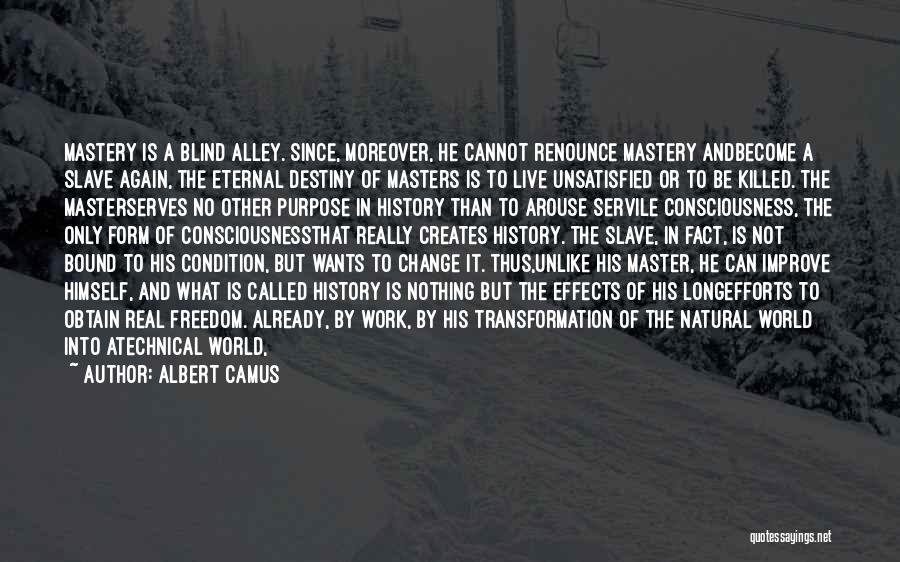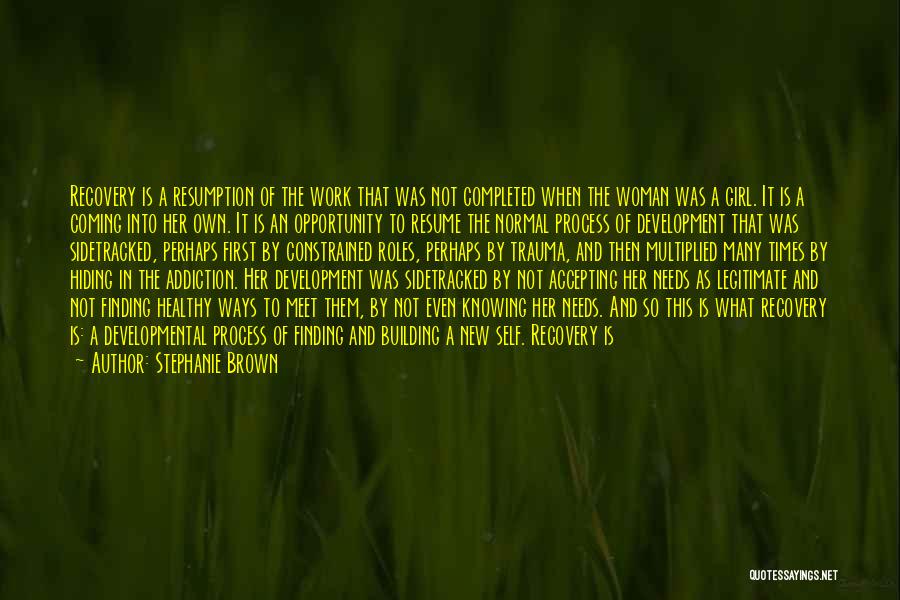Quotes & Sayings About Accepting Change At Work
Enjoy reading and share 2 famous quotes about Accepting Change At Work with everyone.
Top Accepting Change At Work Quotes

Mastery is a blind alley. Since, moreover, he cannot renounce mastery and
become a slave again, the eternal destiny of masters is to live unsatisfied or to be killed. The master
serves no other purpose in history than to arouse servile consciousness, the only form of consciousness
that really creates history. The slave, in fact, is not bound to his condition, but wants to change it. Thus,
unlike his master, he can improve himself, and what is called history is nothing but the effects of his long
efforts to obtain real freedom. Already, by work, by his transformation of the natural world into a
technical world, he manages to escape from the nature which was the basis of his slavery in that he did
not know how to raise himself above it by accepting death. — Albert Camus

Recovery is a resumption of the work that was not completed when the woman was a girl. It is a coming into her own. It is an opportunity to resume the normal process of development that was sidetracked, perhaps first by constrained roles, perhaps by trauma, and then multiplied many times by hiding in the addiction. Her development was sidetracked by not accepting her needs as legitimate and not finding healthy ways to meet them, by not even knowing her needs. And so this is what recovery is: a developmental process of finding and building a new self. Recovery is a process of radical growth and change. When you are in recovery, you give birth to a new self. [...] Many women initially think that recovery means a move from bad to good. They think that being addicted is evidence of shameful neediness, of deep and lasting failures. Recovery is not a move from bad to good, but from false to real. [...] It is reality, being real, that now guides her rather than her efforts to be good or bad. — Stephanie Brown





